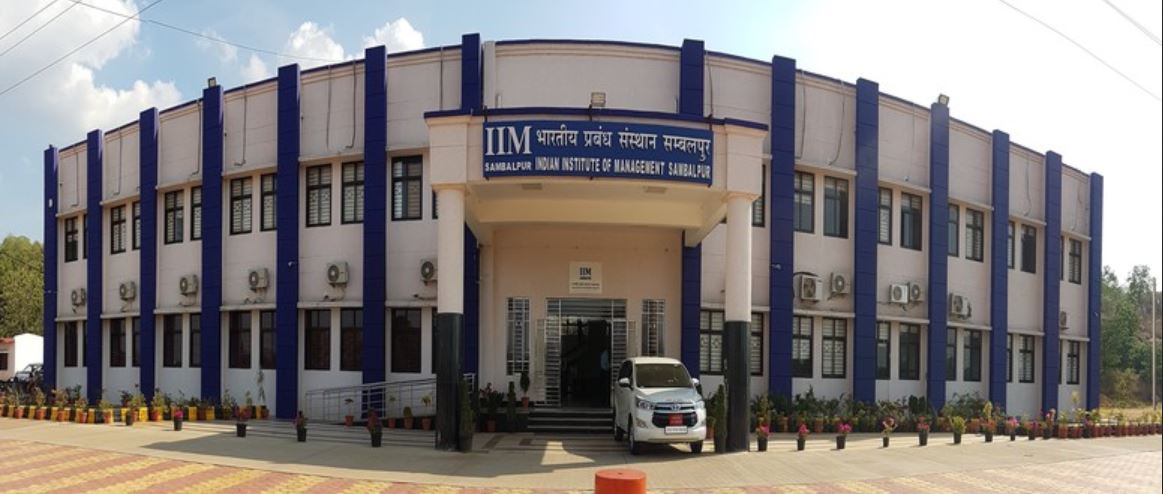Joint Entrance Screening Test (JEST) on Feb 17
Joint Entrance Screening Test (JEST) for admission to Ph.D / Integrated Ph.D Programme in Physics or Theoretical Computer Science in one of the 23 Participating Institutes, as per the list given below, will be held on 17th February 2013 will be held at Agartala (to be confirmed), Ahmedabad, Aligar, Bangalore, Bardhaman, Bhopal, Bhubaneswar, Chandigarh, Chennai, Delhi, Goa, Guwhati, Hyderabad, Indore, Jaipur, Kanpur, Kharagpur, Kochi, Kolkata, Madurai, Mumbai, Nagpur, Nainital, Patna, Pune, Raipur, Roorkee, Sambalpur, Silchar, Siliguri, Srinagar, Trivandrum, Udaipur, Varanasi and Vishakhapatnam with multiple test centers at Kolkata and Delhi.
Those seeking admission for a Ph.D / Integrated Ph.D Programme in Physics or Theoretical Computer Science in the Participating Institutes have to appear for the Joint Entrance Screening Test (JEST).
The Participating Institutes and the areas of specialization are as follows.
(i) ARIES: Aryabhatta Research Institute of Observational Sciences, Nainital: Astronomy and Astrophysics, and Atmospheric Physics
(ii) HBNI: Homi Bhabha National Institute, Mumbai
(iii) HRI: Harish-Chandra Research Institute, Allahabad: Theoretical Physics, Astrophysics
(iv) IGCAR: Indira Gandhi Centre for Atomic Research, Kalpakkam: Solid State Phase transformations, Superconductivity, Structure and dynamics of soft condensed matter, Band structure studies, Accelerators based Irradiation induced phenomena, Low-dimensional systems, Physics of interfaces, Nano-materials, Thin films technology and Theoretical physics
(v) IIA: Indian Institute of Astrophysics, Bangalore: Astronomy and Astrophysics, Astronomical Instrumentation, Optics, and Atomic Physics
(vi) IISc: Indian Institute of Science, Bangalore: Condensed Matter Physics (Experiments and Theory), Astronomy and Astrophysics (Theoretical), Atomic and Optical Physics (Experimental), Biocrystallography and Bio-informatics, and High Energy Physics (Theoretical)
(vii) IISER MOHALI: Indian Institute of Science Education and Research, Mohali: Quantum Theory, Quantum Information Processing, NMR-Methodology, Optics, Statistical Mechanics, Quantum Thermodynamics, Non-linear Dynamics, String Theory, Ultrafast Physics, and Low Temperature Mesoscopic Physics
(viii) IISER PUNE: Indian Institute of Science Education and Research, Pune: Field Theory, Theoretical Particle Physics, Condensed Matter Physics, Non-linear Dynamics, Complex Systems and Networks, Nuclear Magnetic Resonance Spectroscopy, Quantum Information Processing, Radio Astrophysics, Atomic Physics and Quantum Optics, Energy Studies, Solar and Plasma Physics, Nanosciences, Scanning Probe Techniques, and Semiconductor Physics and Devices
(ix) IISER THIRUVANANTHAPURAM: Indian Institute of Science Education and Research, Thiruvananthapuram:Experimental Condensed Matter: Magnetic and Superconducting materials, Nanoscience and Energy materials, Photonics, Soft Condensed Matter, Semiconductor Physics and Devices, Surface Sciences and Nano-scale Plasmonics, Terahertz and Ultrafast Spectroscopy; Theory: Cosmology, Classical and Quantum Gravity, Gravitational Wave Physics, Quantum Information Theory, Quantum Field Theory, and Statistical Physics
(x) IMSc: The Institute of Mathematical Sciences, Chennai: Theoretical Physics, and Theoretical Computer Science
(xi) IOP: Institute of Physics, Bhubaneswar: Physics (Condensed Matter, Nuclear and High Energy Physics) and Accelerator-based Research
(xii) IPR: Institute for Plasma Research, Gandhinagar: Physics (Experimental and Theoretical)
(xiii) IUCAA: Inter-University Centre for Astronomy and Astrophysics, Pune: Physics, Astronomy and Astrophysics
(xiv) JNCASR: Jawaharlal Nehru Centre for Advanced Scientific Research, Bangalore: Experimental and Theoretical Condensed Matter Physics, Statistical Mechanics, and Materials Science
(xv) NCRA-TIFR: National Centre for Radio Astrophysics, TIFR, Pune: Astronomy and Astrophysics
(xvi) NISER: National Institute of Science Education and Research, Bhubaneswar: Theoretical High Energy Physics and Lattice QCD, Experimental High Energy Physics, Condensed Matter Physics (Theory and Experiment), Optics and Metamaterials
(xvii) PRL: Physical Research Laboratory, Ahmedabad: Theoretical Physics, Astronomy and Astrophysics, Solar Physics, Space and Atmospheric Sciences, Planetary Science and Geo-Sciences
(xviii) RRCAT: Raja Ramanna Centre for Advanced Technology, Indore: Lasers and their Applications, Laser Plasma Interaction, Cold Atom Physics, Condensed Matter Physics (Superconductivity and Magnetism, Crystals and Thin Films), Nanomaterials and Applications, Non-linear and Ultrafast Optical Studies, Beam Physics, and Free Electron Laser
(xix) RRI: Raman Research Institute, Bangalore: Astronomy and Astrophysics, Light and Matter Physics, Soft Condensed Matter Physics (Liquid Crystals, Physics in Biology), and Theoretical Physics
(xx) SINP: Saha Institute of Nuclear Physics, Kolkata: Condensed Matter Physics (Theory and Experiments), Nuclear Physics (Theory and Experiments), High Energy Physics (Theory and Experiments), Astroparticle Physics, Quantum Gravity, String Theory, Mathematical Physics, and Materials Science (Surface Science and Plasma Physics)
(xxi) SNBNCBS: Satyendra Nath Bose National Centre for Basic Sciences, Kolkata: Astrophysics and Cosmology, Chemical and Biological Physics, Condensed Matter Physics and Material Science, High Energy Physics and Quantum Field Theory, Mathematical Physics, Nanosciences, Quantum Optics and Quantum Information, Statistical Physics, and Complex Systems
(xxii) UGC-DAE CSR: UGC-DAE Consortium for Scientific Research, Indore: Surfaces, Interfaces, Thin Films and Nanomaterials, Physics at Low Temperatures and High Magnetic Fields, X-ray, Optical and Electron Spectroscopic Studies Using Synchrotron and Laboratory Sources; Electrical, Magnetic and Thermal Properties of Condensed Matter; Condensed Matter studies using Magnetic Neutron Diffraction, Nuclear Technique Based Condensed Matter Physics-Positron Annihilation Spectroscopy, Mossbauer Spectroscopy, Experimental Nuclear Physics, Gamma Ray Spectroscopy of Nuclear High Spin States, and Nuclear Reactions.
(xxiii) VECC: Variable Energy Cyclotron Centre, Kolkata: Accelerator Physics, Condensed Matter Physics and Materials Science, Nuclear Physics (Experiments and Theory), Relativistic Heavy Ion Collisions (Experiments, Theory, QCD and QGP), and Physics of Neutrinos (Experiments)
Those interested in seeking admission to an institute through JEST should visit the website of the individual institute to get details of the Programmes and subject areas being offered. Each participating Institutes has its own eligibility criteria. Applicants who are expected to complete their final examinations by August of each year are also eligible to appear for the JEST exam of that year.
One can appear for the JEST exam in Physics or Theoretical Computer Science, but not for both. The questions are based on the general syllabus of Graduation and Post-graduation level courses offered by various Indian Universities and Institutions.
See www.jest.org.in/?q=frequently_asked_questions_jest. for JEST question papers. Normally question papers are not made available. However, some questions from previous year’s examinations are available as sample question papers.
Eligibility: Ph.D. Programme in Physics: M.Sc. in Physics or M.Sc. / M.E. / M.Tech in related disciplines.
M.Sc. in Mathematics / Applied Physics / Applied Mathematics / Optics and Photonics / Instrumentation / Electronics will also be considered at IIA.
B.E or B.Tech will also be considered at IISc, IMSc, IUCAA, JNCASR, NCRA-TIFR RRI, IISER Mohali, IISER Pune, IISER Thiruvananthapuram and SNBNCBS.Talented final year B.Sc and first year M.Sc in Physics / Electronics / Astronomy / Applied Mathematics students may also apply to be pre-selected for research scholarship at IUCAA. MSc in Physics, Engineering Physics or Applied Physics will also be considered at IPR.
Theoretical Computer Science: M.Sc/ M.E/ M.Tech/ M.C.A in Computer Science and related disciplines, and should be interested in the mathematical aspects of computer science. Visit website of IMSc for further details.
Integrated M.Sc / M.Tech – Ph.D Programme: At HRI, IISER-Pune, SNBNCBS, and NCRA-TIFR candidates with a Bachelor’s degree will also be considered for the Integrated M.Sc., Ph.D. programme in Physics.
At IMSc, graduates with Bachelor’s Degree in Science/ Mathematics/ Statistics / Computer Science/ Information Technology/Engineering will also be considered for admission in Physics and in Theoretical Computer Science, as part of an integrated Ph.D. programme. All candidates successful in the course work of this programme shall be awarded a M.Sc. degree.
At SNBNCBS, graduates with B.Sc (Physics) / B.E / B.Tech Degree will be considered for the Integrated Post-B.Sc.-Ph.D. programme in subject areas mentioned above.
At IIA, graduates with B.Sc. (Physics / Mathematics) / B.E. / B.Tech. in Electrical / Instrumentation / Engineering Physics / Electronics and Communications / Computer Science and Engineering / Optics and Photonics will be considered.
Integrated M.Tech – Ph.D. Programme at IIA: Graduates with M.Sc. (Physics / Applied Physics) / Post-B.Sc. (Hons) in Optics and Optoelectronics / Radio Physics and Electronics / B.E. / B.Tech. degree in subjects mentioned above will be considered. Visit IIA website for details.
Integrated Ph.D. Programme at IISER, Thiruvananthapuram: Graduates with Bachelor’s degree in Physics/Technology/Engineering will be considered for the Int. Ph.D. programme in Physics.
Applications for the JEST exam can be made online or by ordinary post during November-December 2012.
To apply by post, applicant should write to JEST 2013, Saha Institute of Nuclear Physics. To apply online, applicants must create an account using a valid e-mail ID. This account will remain valid from the time of account creation till one month after the date of declaration of results, for that year. Email ids are locked to the created account and to the application, and will be used for all communications with the applicants. Therefore, the email id should be active and must not be changed during this period.
To submit online application, applicants must login to the created account and complete the application form. After submission, a unique submission number will be issued. This number must be quoted by the applicant for any communication with the JEST authorities.
An Application Fee of Rs. 100 (Rs 50 for SC/ST applicants) is required to be paid into the Bank Account details that will be provided while submitting the application online.
It is possible to fill-up the form in fragments. Even one can save the form after filling the Mandatory fields in the first page and enter other data in next login. It is advised to do it in one go whenever one is ready with the details. Modification is not possible after final submission.
The fee can be paid either before or after the online submission. The payment receipt/counterfoil/challan, including the applicants name and unique submission number, must be returned to the JEST authorities, before the date to be announced soon, either as a scanned copy of counterfoil/challan/receipt, with name and unique submission number, emailed to the address to be provided soon or as a hard copy of counterfoil/challan/receipt, with name and unique submission number, sent by post to the address that will be given soon.
Online applications will be available during November – December 2012. Results will be announced in March 2013. Interviews will start from the last week of April 2013.






 IIM Sambalpur
IIM Sambalpur
Leave a Reply